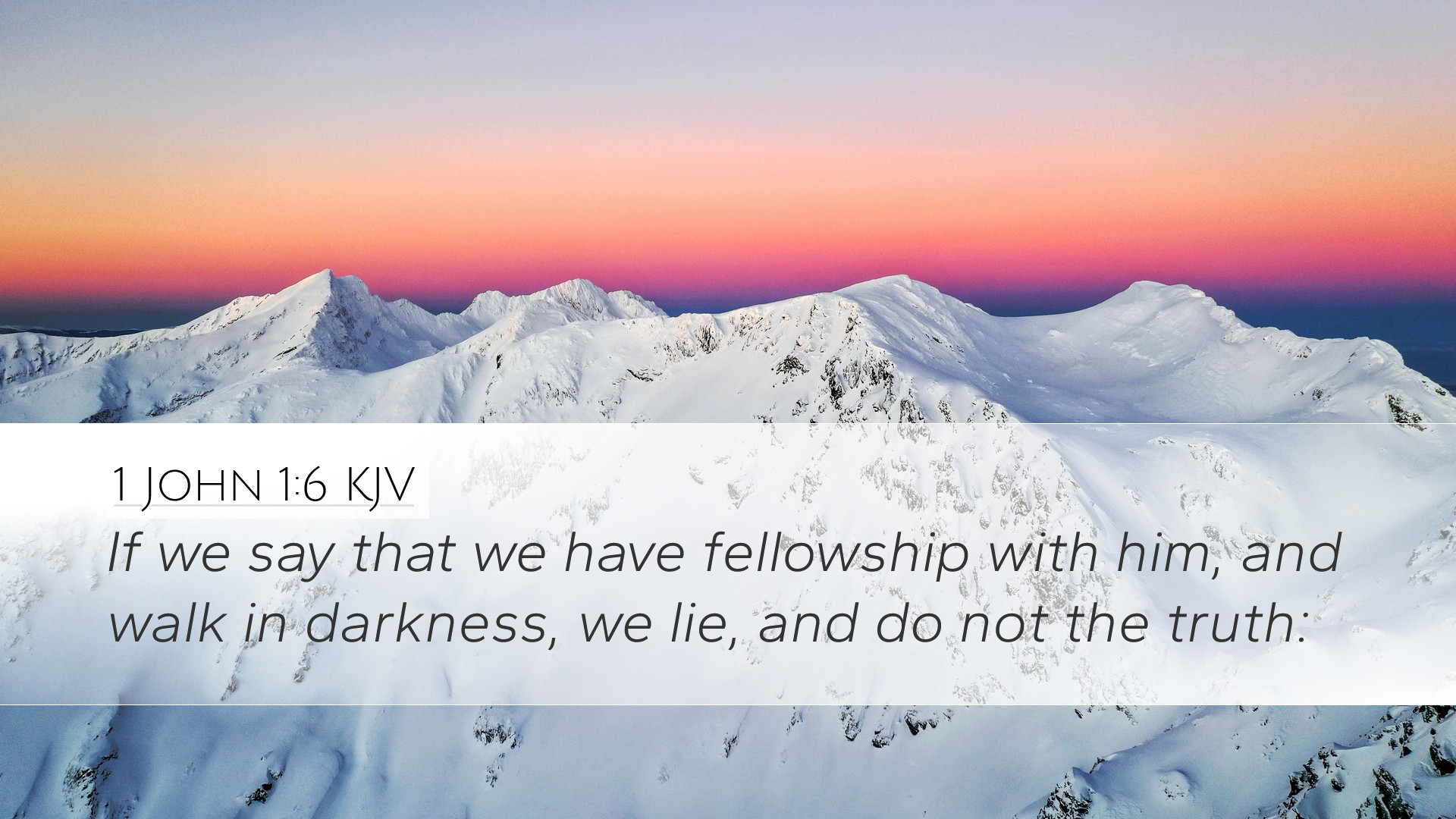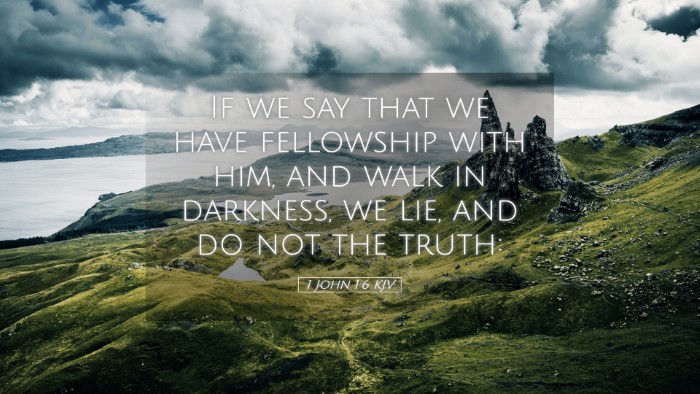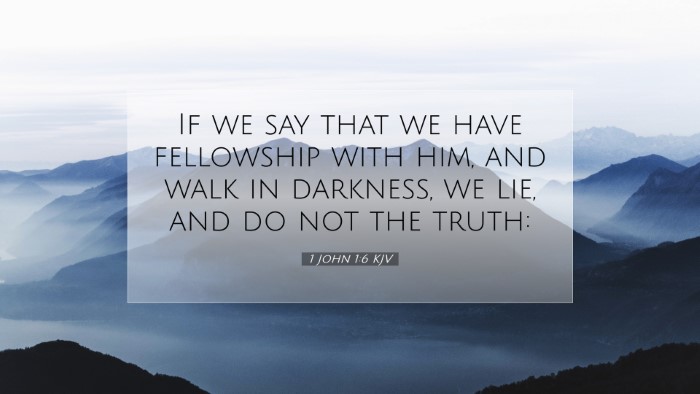Old Testament
Genesis Exodus Leviticus Numbers Deuteronomy Joshua Judges Ruth 1 Samuel 2 Samuel 1 Kings 2 Kings 1 Chronicles 2 Chronicles Ezra Nehemiah Esther Job Psalms Proverbs Ecclesiastes Song of Solomon Isaiah Jeremiah Lamentations Ezekiel Daniel Hosea Joel Amos Obadiah Jonah Micah Nahum Habakkuk Zephaniah Haggai Zechariah Malachi1 John 1:6
1 John 1:6 KJV
If we say that we have fellowship with him, and walk in darkness, we lie, and do not the truth:
1 John 1:6 Bible Commentary
Commentary on 1 John 1:6
Verse: 1 John 1:6 - "If we say that we have fellowship with him, and walk in darkness, we lie, and do not the truth."
Introduction
The epistle of 1 John addresses profound issues regarding fellowship with God, the nature of sin, and the importance of truth in the life of believers. Particularly, 1 John 1:6 emphasizes the dichotomy between claiming to have communion with God and living in untruths and moral darkness. This short but powerful verse sets the tone for understanding the holistic nature of Christian fellowship.
Contextual Analysis
To fully grasp John’s message, it is crucial to consider the immediate context of verses 5 to 10. John establishes a foundational truth about God’s nature—God is light, and in Him is no darkness at all (1 John 1:5). The assertion that believers can simultaneously claim fellowship with God while living in darkness challenges the authenticity of their faith.
The Nature of Fellowship
Matthew Henry comments on the rich meaning of fellowship in this context, indicating that it encompasses not only a relational aspect but also a participatory dimension in the divine life. To claim fellowship implies that one shares in God’s nature, which is fundamentally light.
Albert Barnes adds that the premise of having fellowship with God is inherently tied to an ethical and moral lifestyle. Walking in darkness denotes living in sin, contrary to God's holiness, thereby negating any authentic claim to fellowship with Him.
Walking in Darkness
The term "walking" implies a continuous state of life rather than a one-time act. Adam Clarke interprets walking in darkness as a metaphor for a lifestyle characterized by sin and moral failure. This ongoing choice to live in darkness starkly contrasts with the transformative power of encountering God’s light.
The Implications of Lying
John asserts that those who claim to have fellowship with God while walking in darkness "lie." This assertion is not merely an exaggeration; it highlights a significant theological truth about God's expectations for His people.
- Matthew Henry notes that this lie reflects a deeper deception—self-deception. It reveals the human propensity to rationalize sin while maintaining a façade of righteousness.
- Albert Barnes emphasizes that such a lie demonstrates a lack of understanding and acceptance of divine truth. To live in contrast to the truth of God is to rebel against His character.
- Adam Clarke also warns that claiming to know God while indulging in sin leads to spiritual blindness, preventing the believer from experiencing true fellowship with the divine.
Practical Application
The implications of 1 John 1:6 are profound for contemporary believers, theologians, and church leaders. This verse invites an introspective examination of how one’s lifestyle aligns with the claims of one’s faith. It challenges the claim of fellowship with God:
- Examine Personal Conduct: Believers are called to regularly evaluate whether their daily lives reflect the light of Christ.
- Repentance and Growth: Recognizing sin and walking in the light involves a continual process of repentance and spiritual growth.
- Teaching Truth: For pastors and teachers, it is critical to emphasize the importance of authentic Christian teaching that aligns with the truth of Scripture, countering any complacency towards sin.
Conclusion
In summary, 1 John 1:6 serves as a crucial reminder that genuine fellowship with God requires a life lived in the light of His truth. As John emphasizes throughout this epistle, the darkness of sin cannot coexist with the light of God. Thus, the call is for believers to pursue holiness, remain vigilant against self-deception, and engage in authentic fellowship that reflects the light of Christ. The insights drawn from esteemed commentators illuminate the depth of this verse and its application to the lives of believers today.


